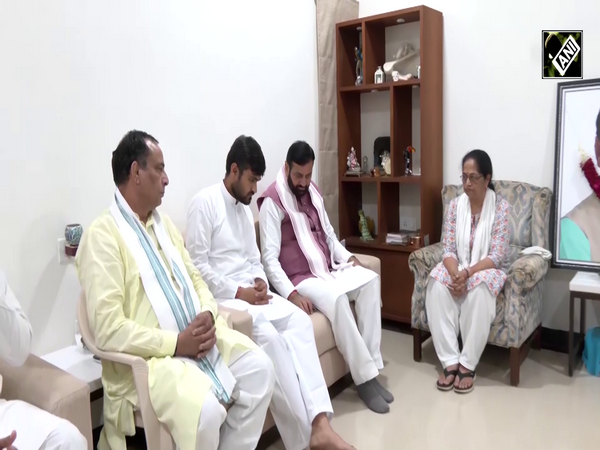
India's Constitution played major role in advancing socio-economic justice for its citizens: CJI
Jun 19, 2025
New Delhi [India], June 19 : Chief Justice of India BR Gavai on Thursday said that the Indian Constitution has given us the vision, tools, and moral guidance and has shown us that law can indeed be a tool for social change, a force for empowerment, and a protector of the vulnerable.
Speaking at the Milan Court of Appeal, Italy, on the topic "Role of Constitution in Delivering Socio-Economic Justice in a Country: Reflections from 75 Years of Indian Constitution," CJI Gavai said that the journey of the Indian Constitution over the past 75 years in delivering socio-economic justice is a story of great ambition and important success.
"Affirmative action policies in education, which sought to correct historical injustices and ensure representation of Scheduled Castes, Scheduled Tribes, and socially and educationally backward classes, have been a concrete expression of the Constitution's commitment to substantive equality and socio-economic justice," he said.
CJI said that Constitution is not just a political document for governance, but was a "revolutionary statement", giving a ray of hope to a country coming out of long years of colonial rule, suffering from poverty, inequality, and social divisions.
He took pride in stating that the framers of the Indian Constitution were deeply conscious of the imperative of socio-economic justice while drafting its provisions.
"The framing of the Indian Constitution set a profound precedent for democratic governance in the post-colonial world. India's Constitution became a model for other emerging nations striving to build inclusive and participatory governance structures," said the CJI.
In his lecture, CJI said that as we look back on these 75 years, there is no doubt that the Indian Constitution has strived for the change in the life of the common people.
"To summarise, several aspects of the Directive Principles were made enforceable by reading or legislating them as a facet of the fundamental rights. While Parliament took a lead by way of legislation and constitutional amendments, the Supreme Court has consistently worked to transform socio-economic rights, ranging from education to livelihood, into enforceable fundamental rights, which were then given effect by the Parliament," he added.
"In other words, the journey of the Indian Constitution over the past 75 years in delivering socio-economic justice is a story of great ambition and important successes. To take an example, the earliest initiatives undertaken by the Indian Parliament immediately after the adoption of the Constitution included land and agrarian reform laws and affirmative action policies for backward classes. The impact of these initiatives is clearly visible today," CJI further said.























